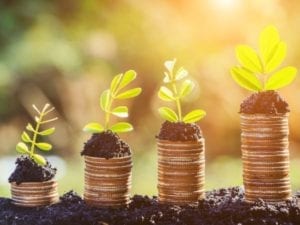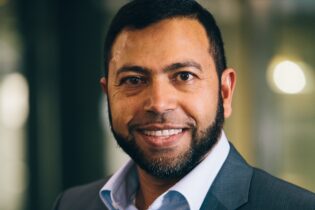Speaking at the inaugural Climate Action Youth Seminar at the CSIR, Executive Head for Nedbank Foundation , Poovi Pillay, called on South Africa’s youth to take advantage of the opportunities created by the emerging green economy.
Pillay described the green economy as an economic model that combines growth and sustainability. “Environmental stewardship does not mean lower economic growth and fewer opportunities, as so many commentators seem to believe—quite the opposite,” he later commented. “If we work together on this, the Green Economy offers us a way to save the planet while creating jobs for young people who have the right skills and attitude.” Nedbank took the decision in 2021 to align all its corporate strategic investments with the principles of the Green Economy, focusing on four key areas: waste, energy, water and agriculture. Since then, the group has invested around R70 million into 10 projects around the country and built strong alliances with other organisations pursuing the same goals. Most of these projects are focused on empowering the youth, Pillay said. Given the ongoing power crisis, the energy sector is obviously a very active area at the moment. With Nedbank’s partner KP Cares aims to upskill young entrepreneurs and SMMEs in the deep rural parts of the Northern Cape and Free State to take advantage of the opportunities created by the transition to sustainable energy. Access to clean water is another issue getting major news focus now. Nedbank’s partnership with Kusini Water is rolling out Water Champions kiosks that purify and then sell drinking water, with each kiosk providing a potential income of R30 000 per month.Fortuitously, Kusini Water has its solution in 14 schools in the cholera stricken Hammanskraal area, which are being used as distribution points to provide residents with clean water.
“This is a great example of how the Green Economy works, building networks of profit and sustainability around the country,” Pillay comments. “Similar projects are being funded in the waste and agricultural sectors—all with the aim of providing opportunities while reinventing the old, wasteful economy.” During his address, Pillay highlighted the importance of building a youth cadre with the deep skills needed to make the green economy the dominant economic model. In one initiative, Nedbank is helping to endow fellowships for postgraduate students pursuing research in the water sector. The fellowships will help these postgrads acquire the professional and leadership skills needed to transform the industry itself. Another initiative, in partnership with the GetOn Foundation, is to equip 30 entrepreneurial students with the skills to enable them to gain employment or start their own businesses within 12 months. At least half of these students must be involved in the green economy. Closing his address, Pillay said: “Our challenges as a nation and as a globe are big ones. They are pressing, and there is no room for delay—the time for action is now. I hope what I’ve said here today will act as an invitation to all of you to embark on this journey with us and make it your own.”






